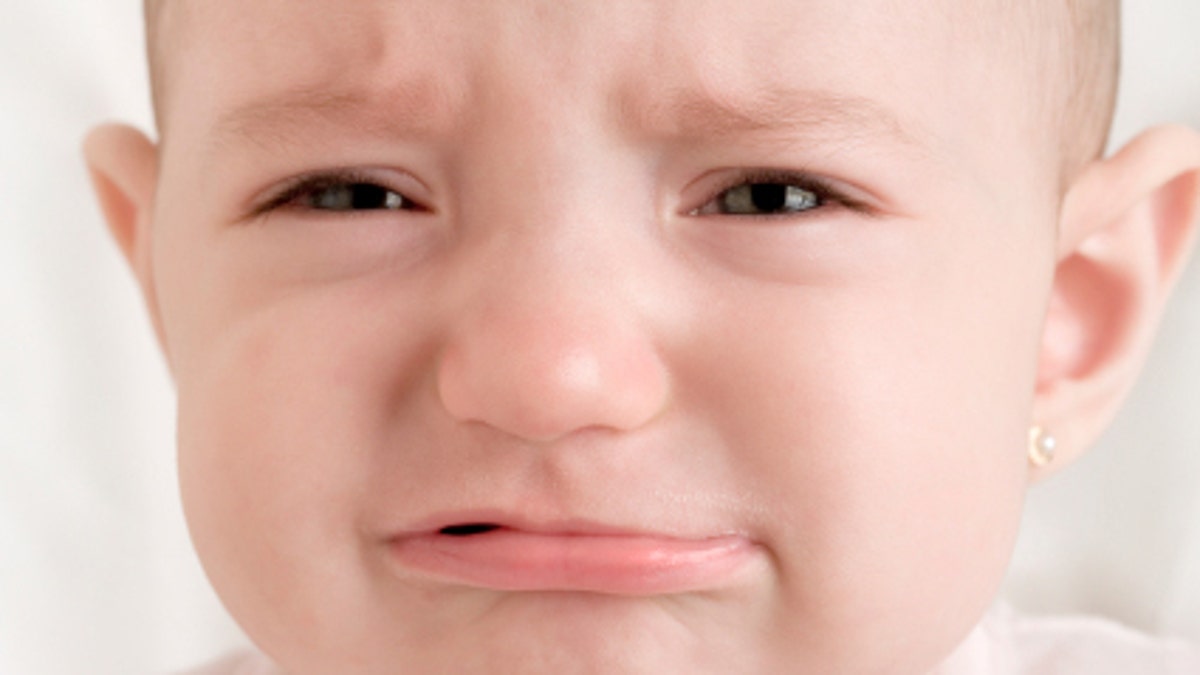
Colicky babies may cry less after treatment with a scaled-back version of acupuncture, according to a new study - but the results are controversial. Not everyone is convinced the needle therapy is beneficial for babies.
Researchers in Sweden found colicky babies spent less time crying and were less likely to be colicky after two weeks of acupuncture compared to babies receiving usual care.
"There is no safe medical treatment that has effect, but a nutritional supplement of Lactobacillus reuteri can be tried, and meeting a supportive professional may relieve the burden of colic," lead author Dr. Kajsa Landgren, of Lund University, told Reuters Health in an email.
If babies cry more than three hours per day, parents may want to consider removing cow's milk from their diets, she said. "For those infants who still have colic, minimal acupuncture seems to be a safe and effective treatment."
About 10 to 20 percent of families have had babies who cry excessively, write Landgren and Inger Hallstrom in the journal Acupuncture in Medicine.
For the new study, they recruited 426 healthy infants aged two to eight weeks, but only 157 were enrolled in the trial. Many infants didn't actually have colic and some parents did not want to participate.
The babies were randomly assigned to receive one of two types of acupuncture or usual care, which included regular wellness visits.
"In children, fewer needles are used, and the stimulation of the needles is mild and short compared to treating adults," said Landgren. "In other trials, laser-acupuncture and acupressure have been used in babies."
Overall, 147 babies completed the two-week trial. The researchers say babies receiving acupuncture improved more on measures of crying than those who got usual care.
For example, babies getting acupuncture spent 40 percent less time crying from their first visit to their last, compared to a 20 percent difference among babies who received usual care.
Infants who received acupuncture were also less likely to meet the criteria for colic after a week or two of the intervention, the study found.
The infants collectively received 388 acupuncture sessions. Babies cried during 188 of those sessions, and the people delivering the acupuncture reported seeing a single drop of blood 15 times.
"For otherwise healthy infants who according to a diary actually cry more than three hours/day, and elimination of cow's milk protein or a nutritional supplement with lactobacillus reuteri did not help, I think acupuncture can be tried, provided that an acupuncturist trained in pediatric acupuncture is available," said Landgren.
The study had too few participants to say whether one acupuncture technique outperformed the other. In addition, statisticians who reviewed the paper for the Science Media Center, a UK-based news service, were concerned that the babies' parents might have been able to guess what treatment the babies received, which could have biased the results. They also point out that combining results from the two acupuncture groups, as the study did, could be a potential source of bias.
None of the statisticians were involved in the study.
One of them suggested the findings should be looked at alongside other studies that investigated a similar treatment. "It's too small a study to be conclusive on its own but as there is no proven conventional treatment for infantile colic one could argue there is more evidence for acupuncture than conventional best practice," Dr. George Lewith, a professor of health research at the University of Southampton in the UK, said in a press statement.
A second statistician, Edzard Ernst, emeritus professor of complementary medicine at the University of Exeter in the UK, said in a press statement that the study showed almost the opposite of what the authors conclude.
"We know colicky babies respond even to minimal attention, and this trial confirms that a little additional TLC will generate an effect," he said. "The observed outcome is therefore not necessarily related to acupuncture."








































